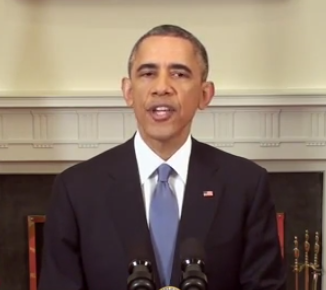The agency said the devices, which make up the so-called Internet of Things, also raise serious security and privacy risks that could undermine consumers’ confidence.![]()
Category Archives: Policy
Bits Blog: Amazon Investigated in Japan Over Child Pornography
Facebook Complies with Turkey Block
Facebook has blocked a page which a Turkish court claimed was offensive to the Prophet Muhammad.
DEA Settles Fake Facebook Profile Lawsuit Without Admitting Wrongdoing
The Justice Department is agreeing to pay $134,000 to a New York woman to resolve an incident in which the Drug Enforcement Agency created a counterfeit Facebook profile and posted risqué personal pictures the agency obtained from her mobile phone without consent, according to federal court documents [PDF] filed Tuesday.
The woman, who at the time went under the name Sondra Prince, eventually was sentenced to probation and six months of home confinement. The DEA created a phony Facebook profile in her name and maintained it for at least three months in 2010 in a bid to nab other suspects connected to an alleged drug ring. At one point in the litigation, the government said the counterfeit account was for “legitimate law enforcement purposes.”
Richard Hartunian, the US attorney for the northern district of New York, said in a statement that the settlement “demonstrates that the government is mindful of its obligation to ensure the rights of third parties are not infringed upon in the course of its efforts to bring those who commit federal crimes to justice.” He said the deal “also takes into account emerging personal privacy concerns in the age of social media, and represents a fair resolution of plaintiff’s claims.”
Read 3 remaining paragraphs | Comments
Obama Talks Cybersecurity, but Federal IT System Breaches Increasing
President Barack Obama has said that his proposed cybersecurity legislation is expected to bolster the private sector’s defenses. Later tonight, he is expected to urge Congress and the American public to embrace the Cyber Intelligence Sharing and Protection Act during his State of the Union address. The measure, known as CISPA, was unveiled a week ago and is controversial because it allows companies to share cyber threat information with the Department of Homeland Security—data that might include their customers’ private information.
The proposal by Obama, who once threatened to veto similar legislation, comes in the wake of the December hack of Sony Pictures Entertainment and breaches of giant retailers including Target.
But new research out Tuesday from George Mason University calls into question how effective Obama’s proposal would be. That’s because the federal government’s IT professionals as a whole have “a poor track record in maintaining good cybersecurity and information-sharing practices.” What’s more, the federal bureaucracy “systematically” fails to meet its own federal cybersecurity standards despite billions of dollars in funding.
Read 7 remaining paragraphs | Comments
Shifting Politics of Net Neutrality Debate Ahead of F.C.C. Vote
Cory Doctorow and EFF Aim to “Eradicate DRM in Our Lifetime”
The Electronic Frontier Foundation announced Tuesday that Boing Boing’s Cory Doctorow has been commissioned to tackle digital rights management technologies (DRM) that the rights group says threatens security, privacy, and undermines public rights and innovation.
The group said Tuesday that Doctorow, a vocal DRM opponent, is to become a special consultant for what the group is calling the Apollo 1201 Project, “a mission to eradicate DRM in our lifetime.”
Doctorow, the EFF’s former European affairs coordinator and current Boing Boing editor, said in a statement:
Read 5 remaining paragraphs | Comments
Doxing Victim Zoe Quinn Launches Online “Anti-Harassment Task Force”
On Friday, Depression Quest developer and doxing victim Zoe Quinn launched an online “anti-harassment task force” toolset, staffed by volunteers familiar with such attacks, to assist victims of a recent swell of “doxing” and “swatting” attacks.
The Crash Override site, built by Quinn and game developer Alex Lifschitz, offers free services from “experts in information security, white hat hacking, PR, law enforcement, legal, threat monitoring, and counseling” for “victims of online mob harassment.” According to the site, those experts are “mostly former clients” who have faced similar online threats, and their efforts will not include “retaliatory action against abusers.”
In addition to a contact form and a lengthy summary of Crash Override’s pre- and post-harassment services, the site includes links to a guide to help people control how much personally identifiable information appears on the Internet, along with a Twitter feed containing public statements from two users claiming to have used Crash Override’s services to mitigate the effects of online harassment.
Read 4 remaining paragraphs | Comments
British Spy Agency Captured Journalists’ Messages Amongst 70,000 E-mails
The Government Communications Headquarters (GCHQ), the British sister agency of the National Security Agency, captured e-mails of some journalists out of 70,000 message intercepted in 10 minutes during a November 2008 test.
According to The Guardian, which on Monday cited some of its Snowden documents as its source (but did not publish them), the e-mails were scooped up as part of the intelligence agency’s direct fiber taps.
Journalists from the BBC, Reuters, The Guardian, The New York Times, Le Monde, The Sun, NBC, and The Washington Post were apparently targeted.
Read 2 remaining paragraphs | Comments
F.B.I. Is Broadening Surveillance Role, Report Shows
Since 2008, the bureau has been assuming a larger role in the government’s warrantless surveillance program, according to a newly declassified report.![]()
Sony: ‘No Playbook’ for Hack Attack
The firm says it was a “canary in the coalmine” after being hacked and was reacting to the situation as it unfolded.
South Korea Says North Korea Doubled Size of Its “Cyber Forces,” Can Nuke US
A report published by South Korea’s Defense Ministry on December 6 estimates that North Korea has further increased its focus on network and electronic warfare over the last year, doubling the size of its “cyber forces” to 6,000 soldiers. The report also warned that North Korea has made significant advances in its nuclear weapons technology and could now have the capability of threatening the mainland of the United States with a nuclear strike.
The report, the ministry’s 2014 Defense White Paper, is a biennial review of South Korea’s defense policy similar to the US Department of Defense’s Quadrennial Review, intended to define the government’s defense policy. Defense Ministry officials stated in the report that North Korea’s efforts in cyber-warfare and other “asymmetric” capabilities are part of an effort to cause “physical and psychological paralysis inside South Korea such as causing troubles for military operations and national infrastructures.”
The Defense Ministry report also claimed that North Korea had made advances in miniaturization of nuclear warheads, which
would allow them to be mounted more readily on intercontinental ballistic missiles. “The ability to miniaturize nuclear weapons seems to be at an early but significant level and is estimated as having the ability to threaten the US mainland through a long-range missile,” a Defense Ministry spokesperson said in a summary of the report. The assessment is based on estimates of North Korea’s production of highly enriched uranium.
Read on Ars Technica | Comments
Feds Find Border Drones Don’t Actually Make Border More Secure
The Department of Homeland Security’s (DHS) own watchdog says that drones deployed at the United States-Mexico border do not achieve their objective of protecting the country.
In a 37-page report issued on December 24, 2014 but published for the first time on Tuesday, DHS’ Office of the Inspector General (OIG) concluded that “after 8 years, [Customs and Border Protection, or CBP] cannot prove that the program is effective because it has not developed performance measures.”
In a statement, the agency had a damning conclusion for the CBP drone program, which anticipates spending an additional $443 million to acquire and operate 14 more drones.
Read 7 remaining paragraphs | Comments
Google Handled 345 Million Copyright Takedowns in 2014
Piracy news site TorrentFreak reports that Google removed 75 percent more URLs in 2014 than it did the previous year.
Google doesn’t tally up annual totals, but it does release weekly reports on DMCA notices, and TorrentFreak took it upon itself to add up the weekly reports. Most of the takedown requests are honored. Google has a longstanding tradition of supplying DMCA takedown notices to Chilling Effects, a website that archives such requests.
Just a few years back, the number of takedown requests could be measured in the dozens, not the millions. In 2008, Google handled 62 DMCA takedown requests, and, in that year, each request was over just one copyrighted work. In later years, DMCA notices came to ask for millions of URLs to be removed to protect multiple works.
Read 3 remaining paragraphs | Comments
Prosecutors Say Tools For Hiding Online Hinder Cybercrime Crackdowns
Advocates say tools that cloak online identities are needed to protect activists. Prosecutors say they hinder efforts to police all kinds of crime, from child pornography to illegal gun sales.
What We Know About the New U.S. Sanctions Against North Korea In Response to Sony Hack

On Friday, President Obama signed an executive order allowing new sanctions against individuals and companies in North Korea as the first part of the U.S. response to the Sony hack.
The post What We Know About the New U.S. Sanctions Against North Korea In Response to Sony Hack appeared first on WIRED.
![]()
How Laws Restricting Tech Actually Expose Us to Greater Harm

Matt Dorfman We live in a world made of computers. Your car is a computer that drives down the freeway at 60 mph with you strapped inside. If you live or work in a modern building, computers regulate its temperature and respiration. And we're not just putting our bodies inside computers—we're also putting computers inside […]
The post How Laws Restricting Tech Actually Expose Us to Greater Harm appeared first on WIRED.
![]()
Apple Prevails in Antitrust Suit Over iPod Music
Europe’s Internet Use Surges
The number of Europeans who regularly use the Internet has doubled, to 65 percent of the 28-bloc’s 500 million inhabitants, since 2006, though there remains large differences in Internet usage within the 28-member bloc.![]()


